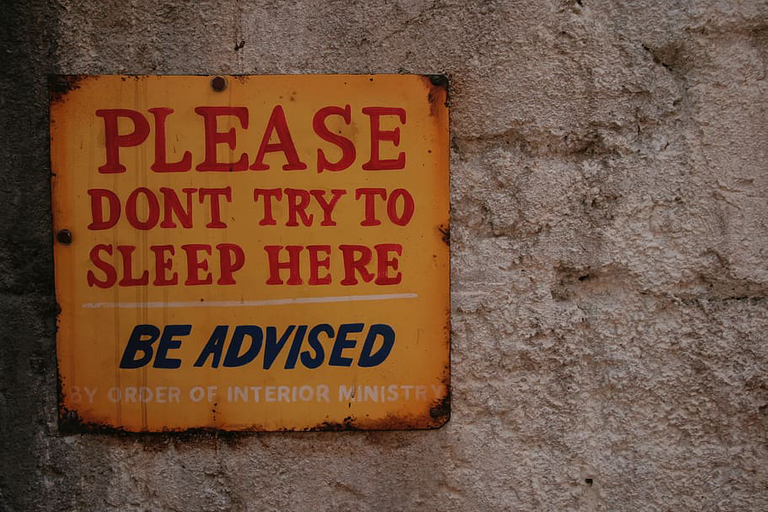Oversleeping: when it becomes mental illness
What's up? Ever felt like you slept for weeks instead of just a few hours when you woke up? On certain mornings, even the thought of dragging yourself out of bed might seem like an insurmountable effort. But what if oversleeping becomes a chronic problem, rather than just an occasional indulgence? Is it feasible that excessive sleeping is caused by factors other than fatigue or a desire to get more sleep? Would it meet the criteria for a mental illness?
The interesting topic of excessive sleeping and its possible effects on mental health is explored in this essay. Hypersomnia, or excessive slumber, is a phenomena that has piqued the interest of scientists and laypeople alike. Our goal is to determine whether or not this apparently benign behaviour has a psychological basis.
We'll take a multifaceted look at oversleeping from a variety of angles, examining relevant research and sharing our own experiences along the way. We believe this will help answer the fascinating question of whether or not excessive sleeping is more than simply a personal choice or an indicator of underlying mental health issues.
This post is for you if you often use the snooze button or suffer from extreme tiredness that interferes with your everyday life. Let's go on an adventure together to find out the truth about what happens to our brains when we get too much sleep. Prepare to delve deeply into the intriguing subject of sleep as we investigate the possibility that excessive sleeping is a mental illness.
Reasons Why You Sleep Too Much
Oversleeping is an interesting phenomena, you know. While a restful night's sleep is something we all look forward to, our bodies may occasionally go overboard. When you first open your eyes, do you ever wish you could go back to sleep for another 10 hours? It's as though the force of gravity in your bed prevents you from leaving it.
But what, really, is excessive slumber? In other words, it happens when individuals get more than the recommended amount of sleep, which is between 7 and 9 hours. Oversleeping is associated with more than simply a groggy morning; it may have serious effects on our health and well-being.
Keep it in mind. Oversleeping causes havoc with our circadian rhythms. It's like someone slamming a crowbar into the gears of our biological clock. This interruption might make you feel sluggish, tired, and unable to focus all day long. That morning nap doesn't seem so good just now.
It's like trying to make sense of an onion to figure out why you sleep too much. It's not as simple as it seems at first glance. An excessive use of the snooze button may be indicative of more fundamental problems inside us than simple laziness. That's why it's crucial to investigate whether or not excessive sleeping is a mental illness in its own right.
Oversleeping: A Psychological Analysis
Getting some additional shut-eye isn't the only benefit of sleeping in. The resulting psychological effects may be fascinating. Let's go into the interesting field of research on the psychological effects of sleeping too much.
To begin, know that excessive sleeping has been associated with certain psychological problems. Consider the condition of depression. It goes hand in hand with sleeping too much. During a depressed episode, a person may want to spend more time in bed, away from the outside world. It's as if excessive slumber becomes a refuge from the stresses of everyday life.
There's also the issue of anxiety problems to consider. Do you ever find it hard to fall asleep because your mind is always racing with concerns? Oversleeping, in an effort to shut off one's worrisome thoughts, may be a common response to sleepless nights. It's as though our physical selves are always trying to find a safe haven from the constant mental noise.
The addition of bipolar disease to the mix further complicates the issue of excessive sleeping. Excessive slumber is typical of depressed episodes. It's as though our bodies need more sleep to make up for the mental and emotional energy we've used. However, people with bipolar illness may have a diminished desire for sleep during manic episodes. It's a wild trip that clashes with our routines and makes oversleeping much more difficult.
However, these mental health issues aren't necessarily the primary cause of excessive sleeping. Medications, sleep problems, and chronic fatigue syndrome are just a few of the numerous conditions that might have an impact. It's like trying to put together a jigsaw with missing parts; we need to look at everything.
Examining oversleeping from different psychological vantage points helps us see it as more than simply an odd habit. It shows how sleep and our mental health are intertwined in complex ways. It's evident that there's a complicated interaction at play between oversleeping and mental health disorders, but the specific cause-and-effect link is still being investigated.
Methods for Treating Excessive Sleepiness
Several options exist for dealing with the problem of excessive sleeping. The key is to figure out what works for you in terms of sleep and strike a balance. So, let's talk about several treatments that can help you cut down on your nap times.
Developing a regular bedtime routine should be your first priority. Our internal clocks thrive on regularity, so it's best to have a consistent bedtime and wake time even on the weekends. This encourages a more regular sleep schedule by assisting the body's internal clock. Establishing a set pattern of behaviour just before bedtime might send a message to your brain that it's time to relax and get ready for sleep.
Cognitive-behavioral therapy (CBT) for sleep is an additional avenue worthy of investigation. Psychological and behavioural factors that exacerbate sleep problems are the primary targets of cognitive behavioural therapy (CBT). Oversleeping may be reduced if the underlying reasons, including stress, anxiety, or bad sleep habits, are dealt with. Better sleep hygiene, stress management, and regular sleep schedules are all within reach with the help of cognitive behavioural therapy (CBT).
Good sleep hygiene is something we must not overlook. Improving the quality of your sleep is one way to get there. Tips include making your bedroom more conducive to sleep (dark, cold, and quiet), limiting your exposure to devices in the hours before bed, and practising relaxation methods like meditation or deep breathing. If you want better sleep, try making any of these little tweaks.
When excessive sleeping is caused by a diagnosable mental health problem, such depression or bipolar disorder, it's crucial to address the underlying cause. The symptoms of oversleeping may improve if you treat the underlying reason. Treatment for mental health issues often entails a multipronged approach, including medication, counselling, and changes to the patient's way of life.
Keep in mind that there is no universal cure for excessive sleeping. It's crucial to collaborate with medical experts who can tailor their advice to your specific situation. They can help you figure out what's causing your excessive sleeping, whether it's a medical problem or a sleep disorder, and how to manage it.
So, if you're in a rut of excessive sleeping, there is hope! You may reclaim command of your nightly slumber with the aid of accessible therapies and techniques. A more regular and restful sleep schedule may be achieved by the adoption of good sleep habits, the exploration of cognitive-behavioral therapy, and the treatment of any underlying mental disorders. Keep in mind that you may improve your sleep health by experimenting with different approaches and settling on what works best for you.
References
https://www.hopkinsmedicine.org/health/wellness-and-prevention/oversleeping-bad-for-your-health
https://www.webmd.com/sleep-disorders/physical-side-effects-oversleeping
https://www.healthline.com/health/depression/too-much-sleep-depression
https://www.hopetherapyandwellness.com/blog/342304-depression-and-oversleeping-whats-the-link
https://www.sleepfoundation.org/how-sleep-works/oversleeping




Dear @jsalvage !
I sleep late!😃
Thanks for your contribution to the STEMsocial community. Feel free to join us on discord to get to know the rest of us!
Please consider delegating to the @stemsocial account (85% of the curation rewards are returned).
You may also include @stemsocial as a beneficiary of the rewards of this post to get a stronger support.